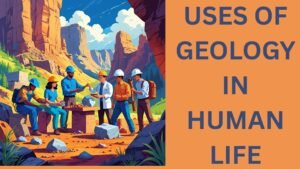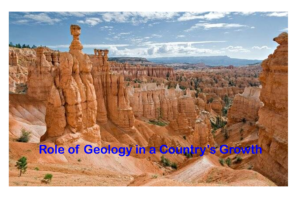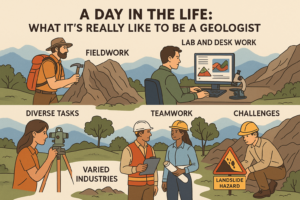Many of us picture rocks, fossils, and perhaps a scientist chipping away at a cliff face when we hear the word geology. However, geology is much more than that; it is literally the basis of our daily existence. Geology subtly contributes to modern human society in a myriad of ways, from the energy that powers our homes to the roads we travel and the water we drink.
This article will discuss how geology affects human existence both directly and indirectly, demonstrating that it is a science that is applicable to everyone, not only geologists.
Geology for essential resources
One of the most important roles of geology is the discovery and management of natural resources. Without geology, we wouldn’t know where to find the minerals and fuels that are crucial for our survival and development.
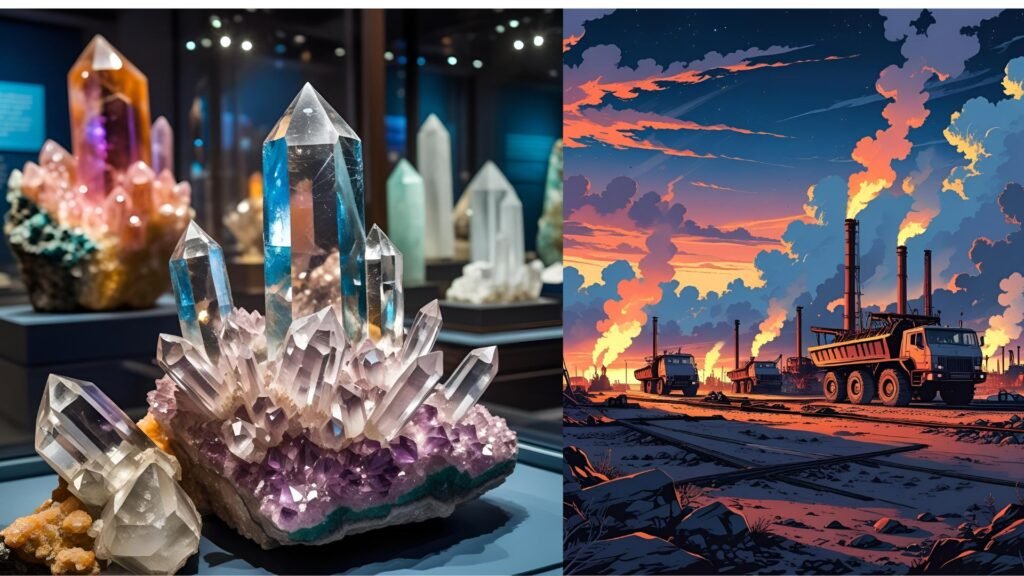
Minerals and Metals
Materials that are taken from the Earth are found in everything from your car to your smartphone. According to geological understanding, the following elements are mined: copper, lithium, iron, aluminum, gold, and rare earth elements. Finding these resources would be like trying to find a needle in a haystack if geologists weren’t researching mineral deposits and geological formations.
Fossil Fuels
Geological exploration is used to find and extract natural gas, coal, and oil—the main sources of energy in the world. To find oil resources hidden beneath hundreds or even thousands of meters of rock, petroleum geologists examine sedimentary basins.
Geology ensures safe drinking water
Water might seem like an everyday thing, but locating safe, clean, and sustainable sources of groundwater is no simple task. Geologists and hydrogeologists are involved in:
- Identifying aquifers
- Studying underground water flow
- Assessing the quality of water
- Preventing contamination from industrial or agricultural sources
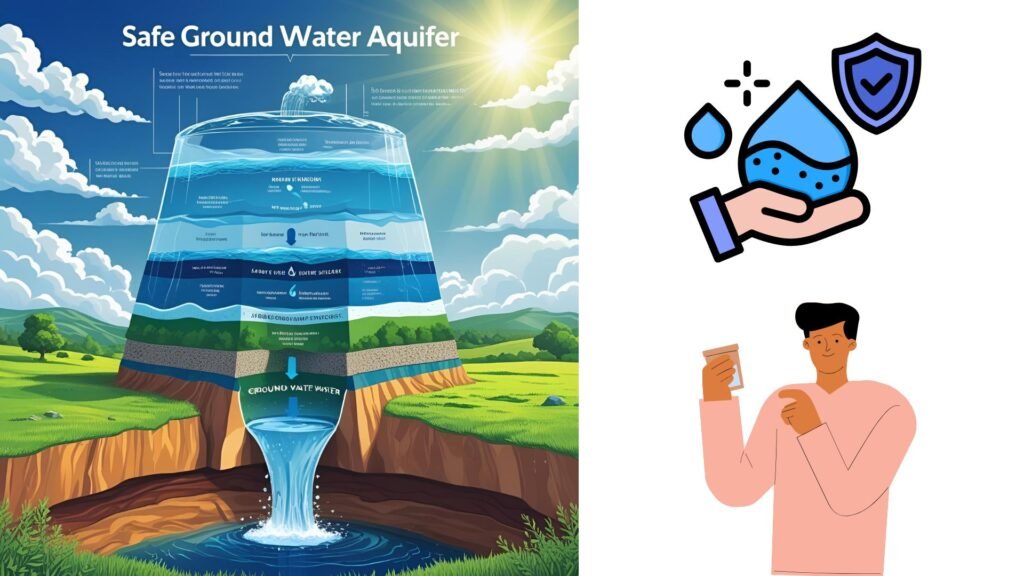
People nearly exclusively rely on groundwater in many parts of the world, particularly in rural or dry areas. It would be very difficult to manage these resources responsibly and safely without geology.
Geology mitigates natural hazards
Natural disasters like earthquakes, landslides, volcanic eruptions, and tsunamis are terrifying — and they all originate from geological processes. While we can’t stop them from happening, geology allows us to:
- Predict where they’re most likely to occur
- Assess the risks involved
- Design safer infrastructure
- Evacuate or prepare communities in time
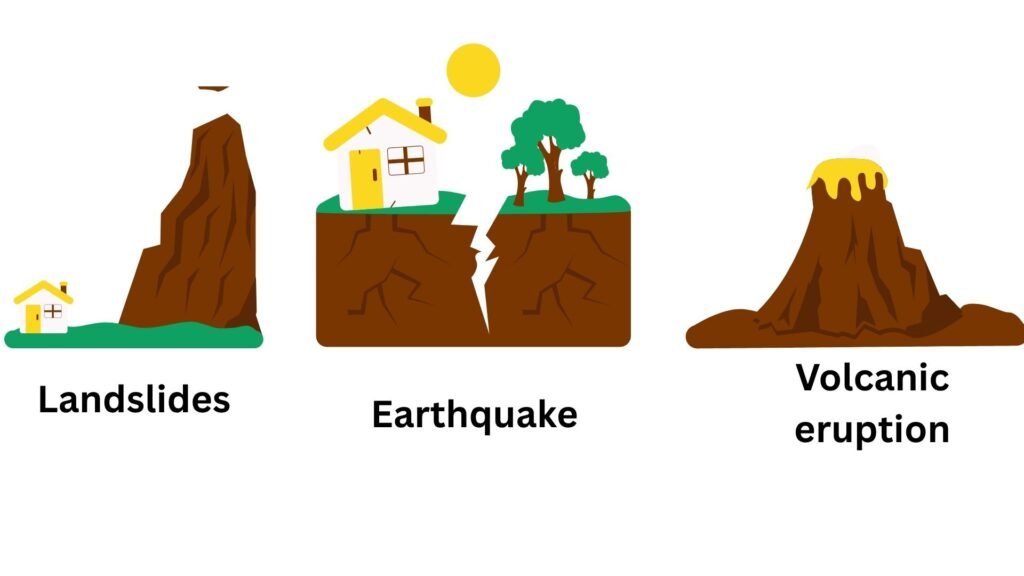
For example, in earthquake-prone regions like California or Japan, construction codes are based on seismic hazard maps made by geologists. In a similar vein, volcanic monitoring aids in the timely issuance of warnings, saving lives in places like Iceland and Indonesia.
Geology helps in development and construction work
Ever wonder how engineers decide where to build bridges, dams, or skyscrapers? Or why certain areas are deemed unsafe for construction? Geologists provide essential information on:
- Soil stability
- Rock strength
- Groundwater movement
- Earthquake risk
- Landslide susceptibility
Before a major infrastructure project begins, engineering geologists conduct thorough site investigations to ensure the ground can support the structure. It’s no exaggeration to say that buildings stay standing thanks in part to geology.
Geology for agriculture
A geological product, soil serves as the basis for agriculture. The underlying rock and the geological processes that created it influence the type, texture, mineral content, and drainage capacity of soil.
Geologists investigate the connection between soil fertility and parent rock, as do soil scientists and agronomists. This aids farmers in determining the crops that are most appropriate for their land and in managing it in a sustainable manner.
Geology powers green energy revolution
With the shift toward sustainable energy, geology is once again proving its worth. Several forms of renewable energy depend directly on geological knowledge:
- Geothermal energy comes from the Earth’s internal heat — and geologists locate suitable reservoirs for power plants.
- Wind and solar farms require strong foundations and optimal site conditions, which are assessed by geotechnical experts.
- Rare earth elements and lithium used in batteries, solar panels, and electric vehicles are found through mineral exploration.
If we’re serious about a cleaner future, geology is part of the solution.
Geology preserves cultural and historical knowledge
Rocks, fossils, and landforms are not just scientific curiosities — they are time capsules. Geology gives us a window into Earth’s deep past, helping us understand:
- The history of climate change
- The evolution of life through fossils
- The formation of continents and oceans
- Ancient human activity through archaeological geology
From dinosaur bones to the footprints of early humans preserved in volcanic ash, geology brings history to life.
Geology supports tourism and recreation
Natural landscapes shaped by geological forces are often among the most stunning and sought-after destinations in the world. Think:
- The Grand Canyon (USA)
- Mount Everest (Nepal)
- The Dolomites (Italy)
- The geysers of Iceland
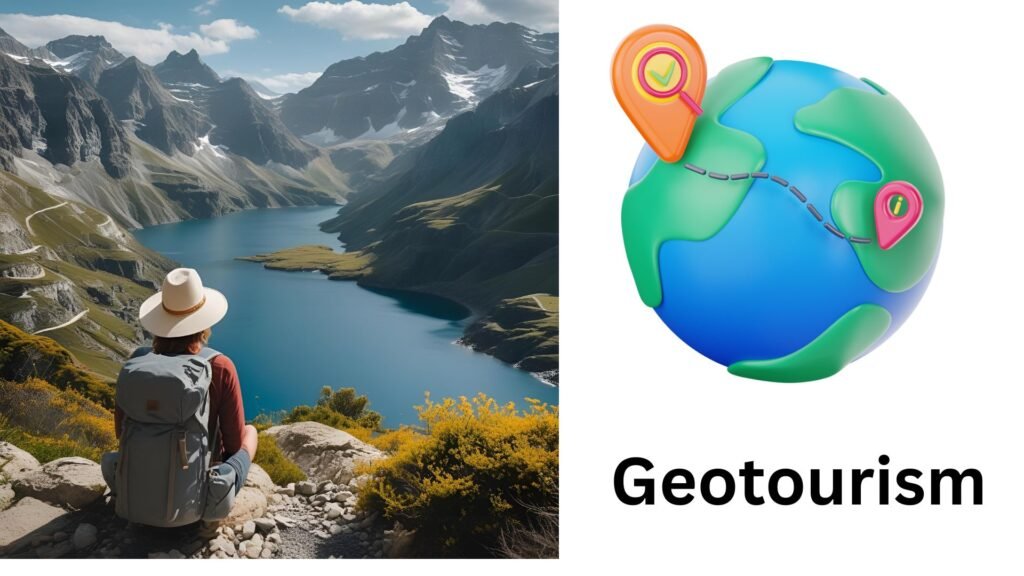
Geotourism and adventure tourism are booming industries that rely on the beauty and significance of geologically unique locations. Geologists also help ensure these places are preserved and enjoyed responsibly.
Geology helps in understanding climate change
The phenomena of climate change is not merely a contemporary problem; it has occurred on Earth in cycles spanning millions of years. By studying:
- Ice cores
- Sediment layers
- Fossil pollen
- Carbon isotopes in rocks
Geologists reconstruct past climates (paleoclimatology), offering insights into how the Earth responded to previous warming and cooling periods. This knowledge is crucial in predicting and planning for current and future changes.

